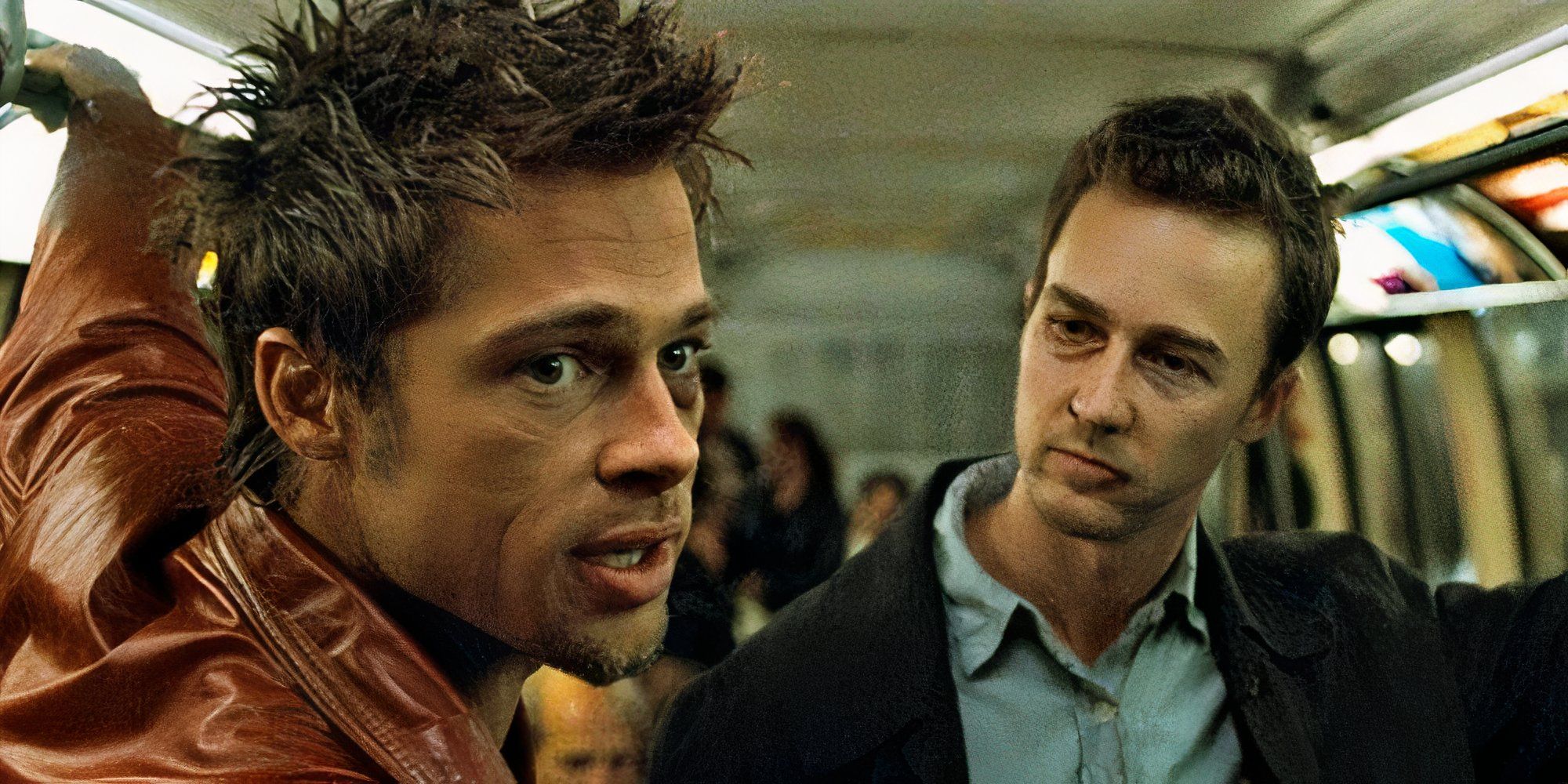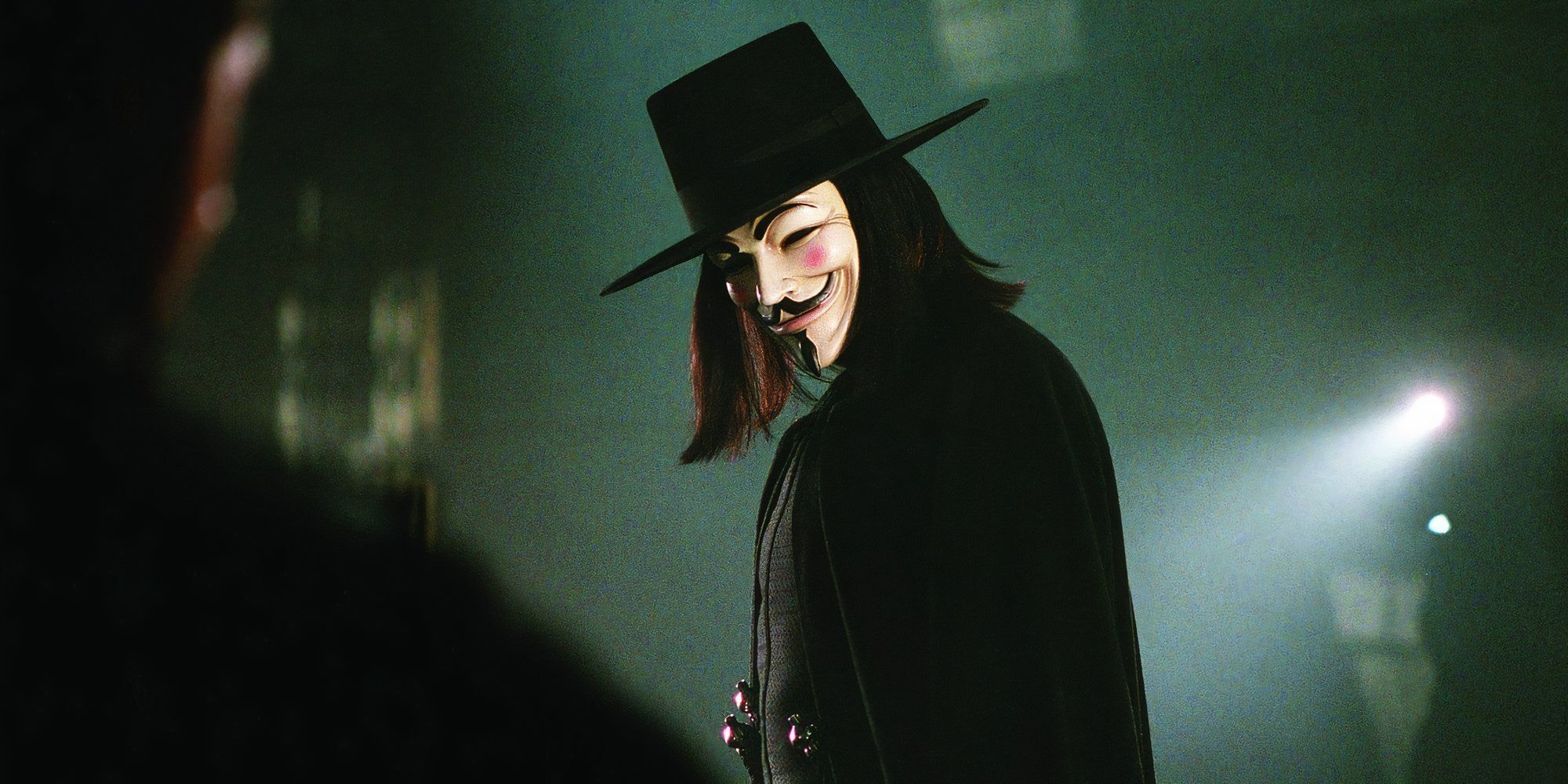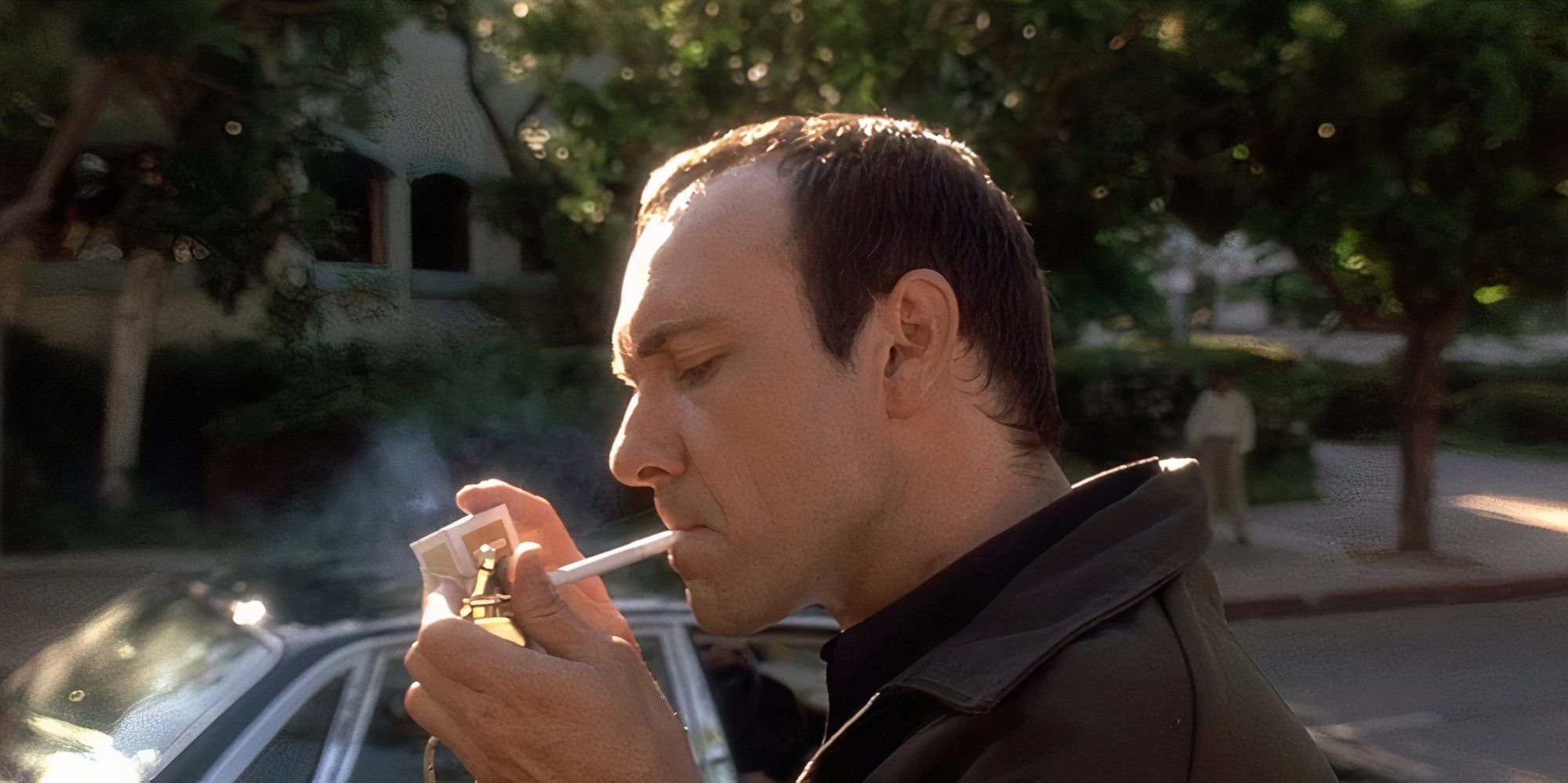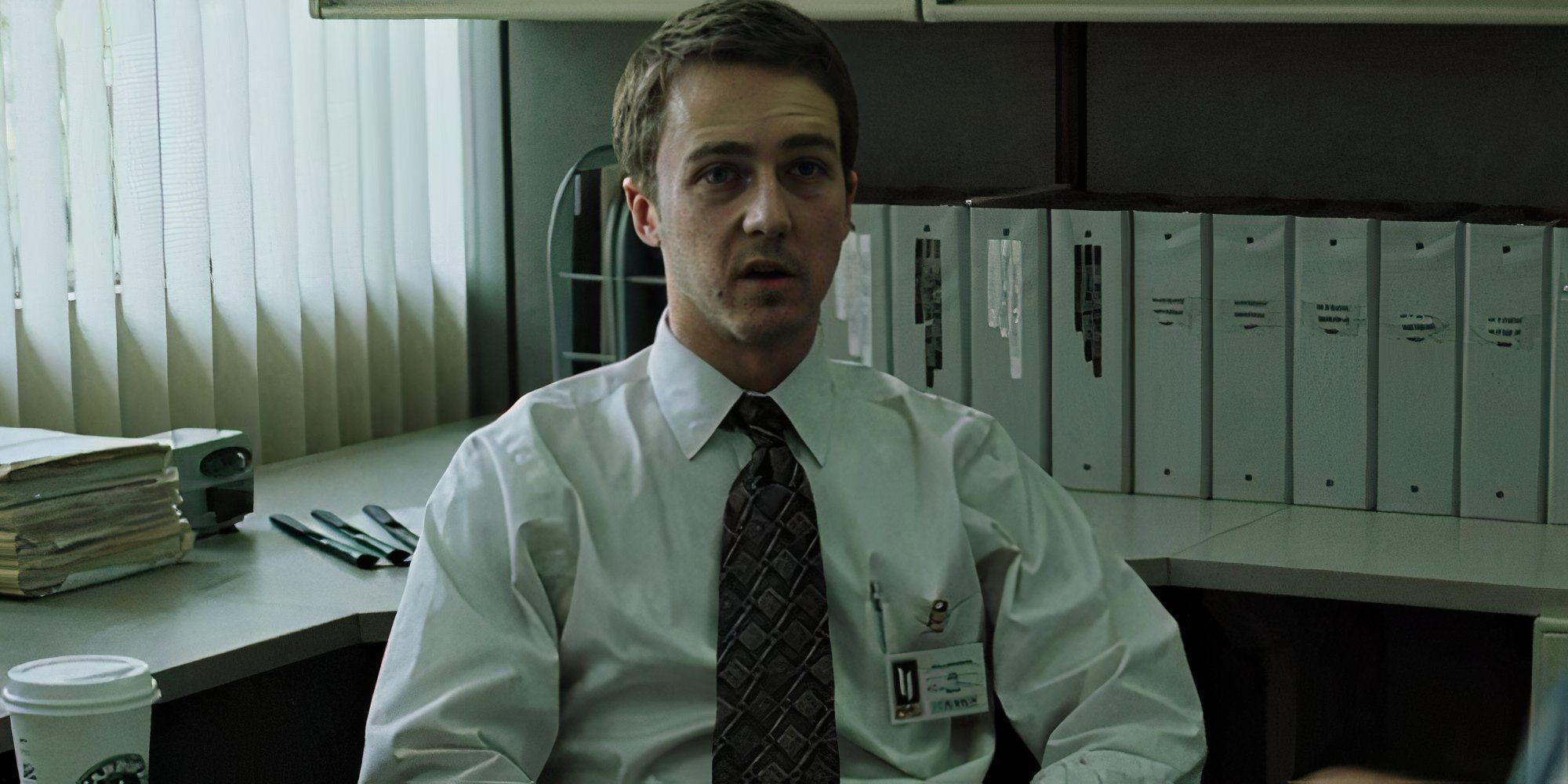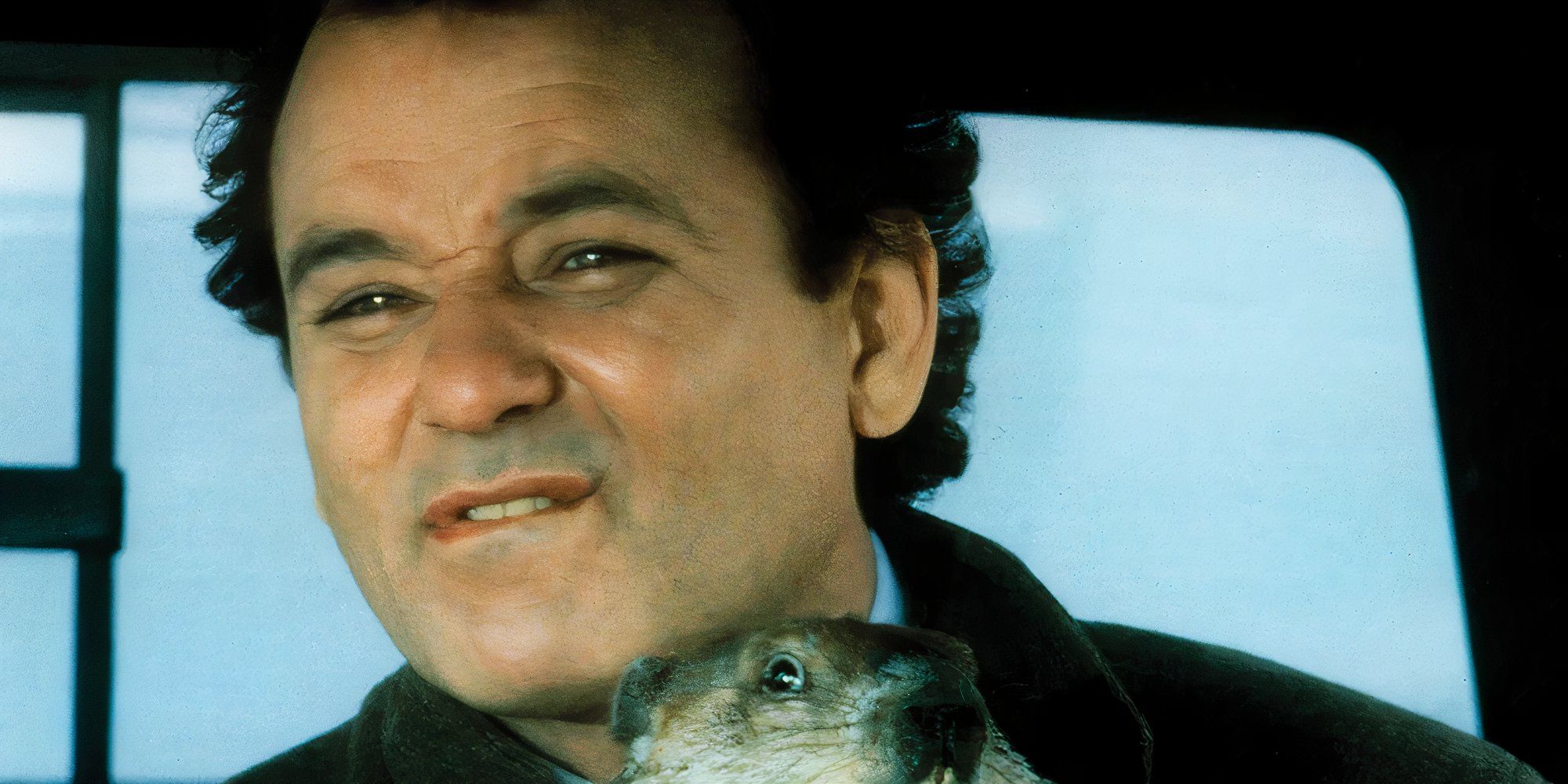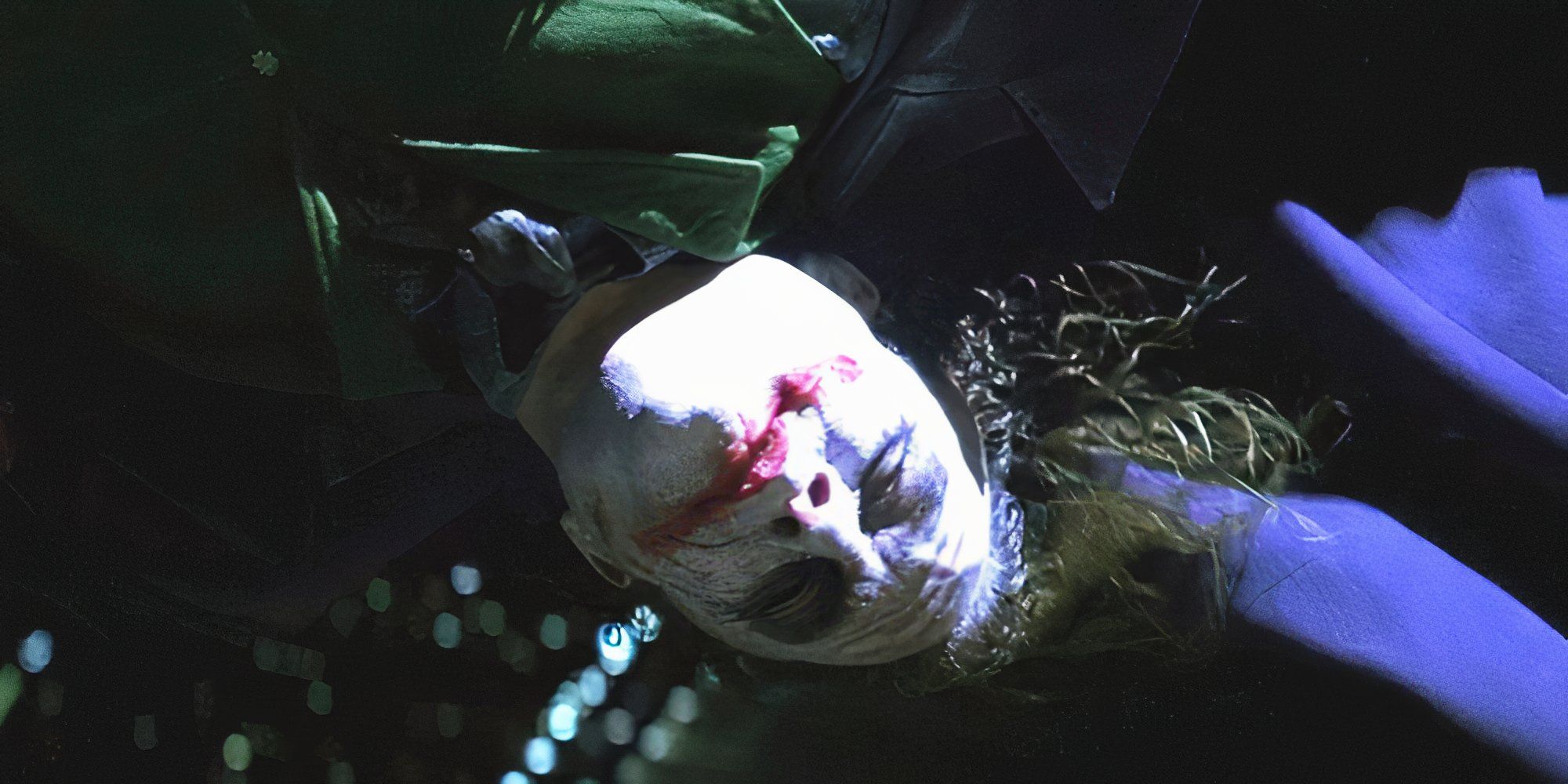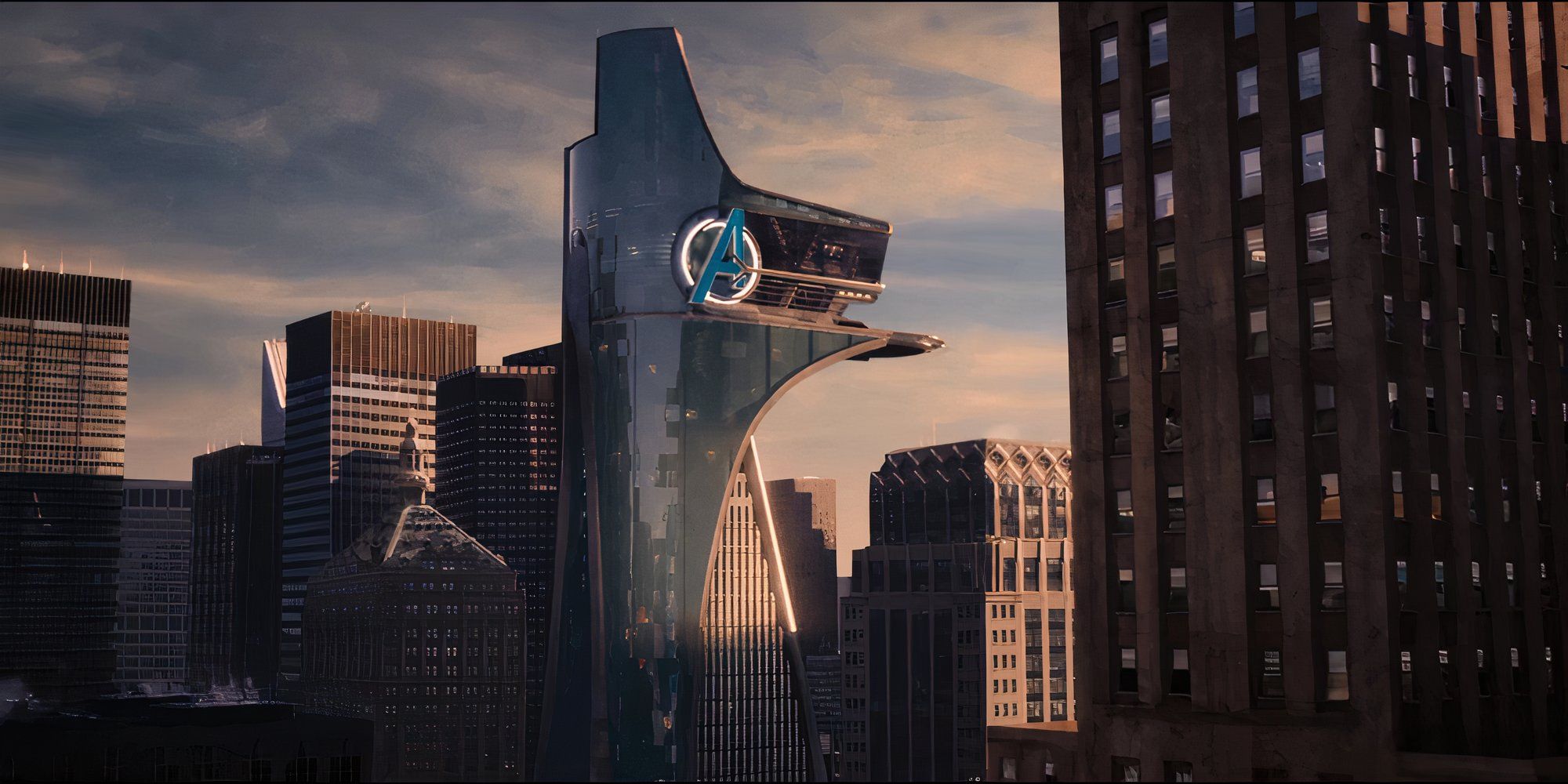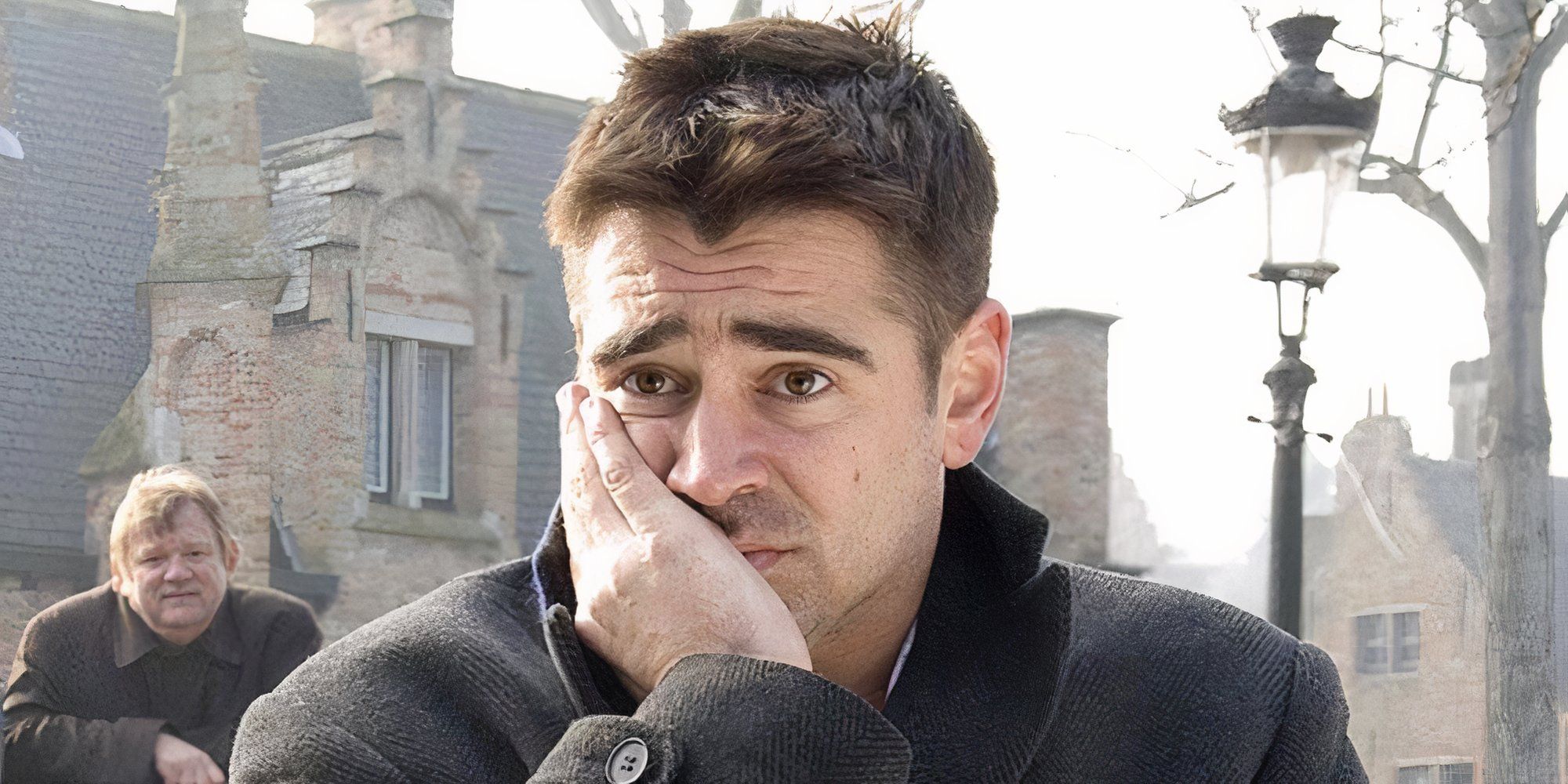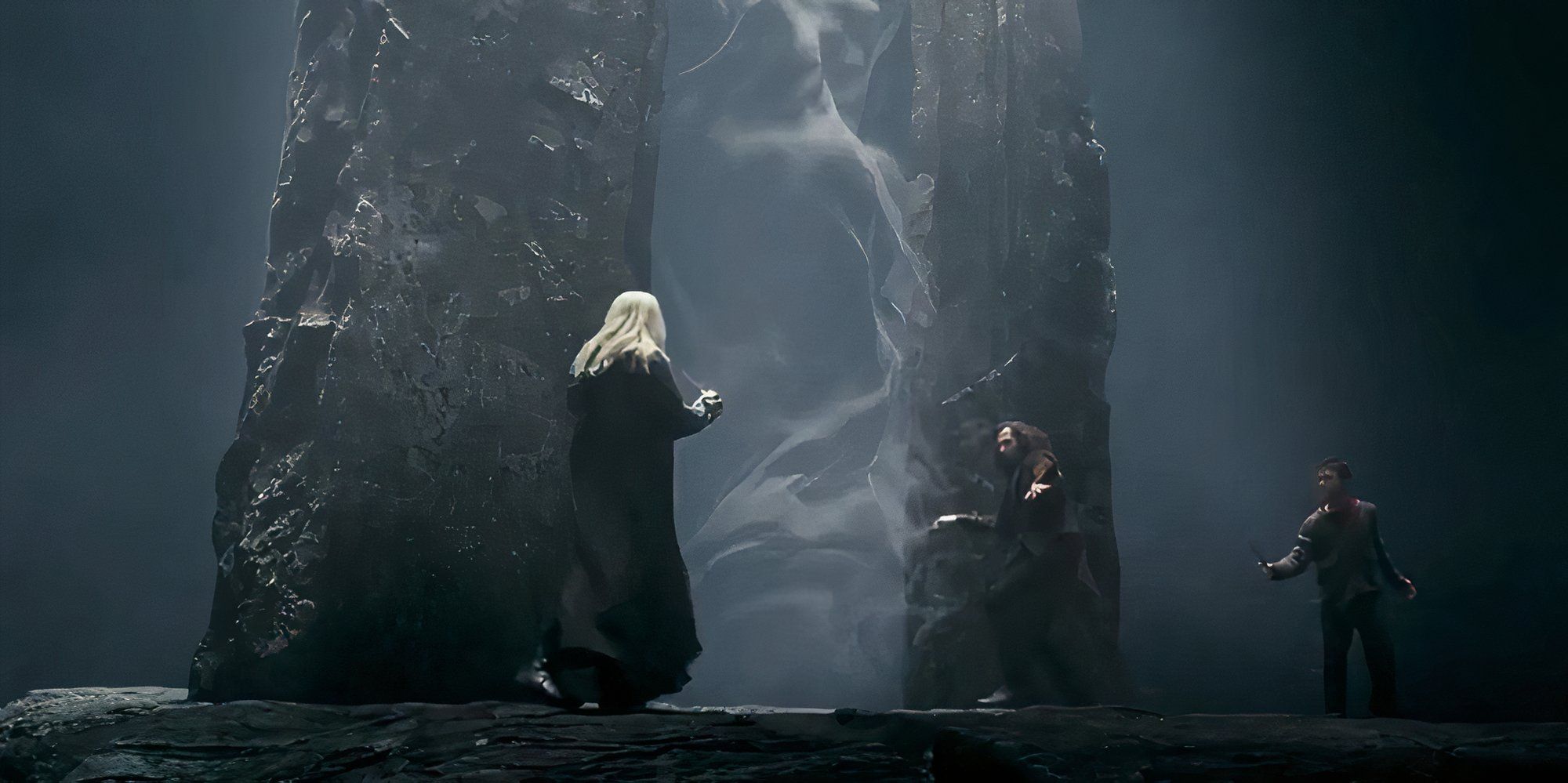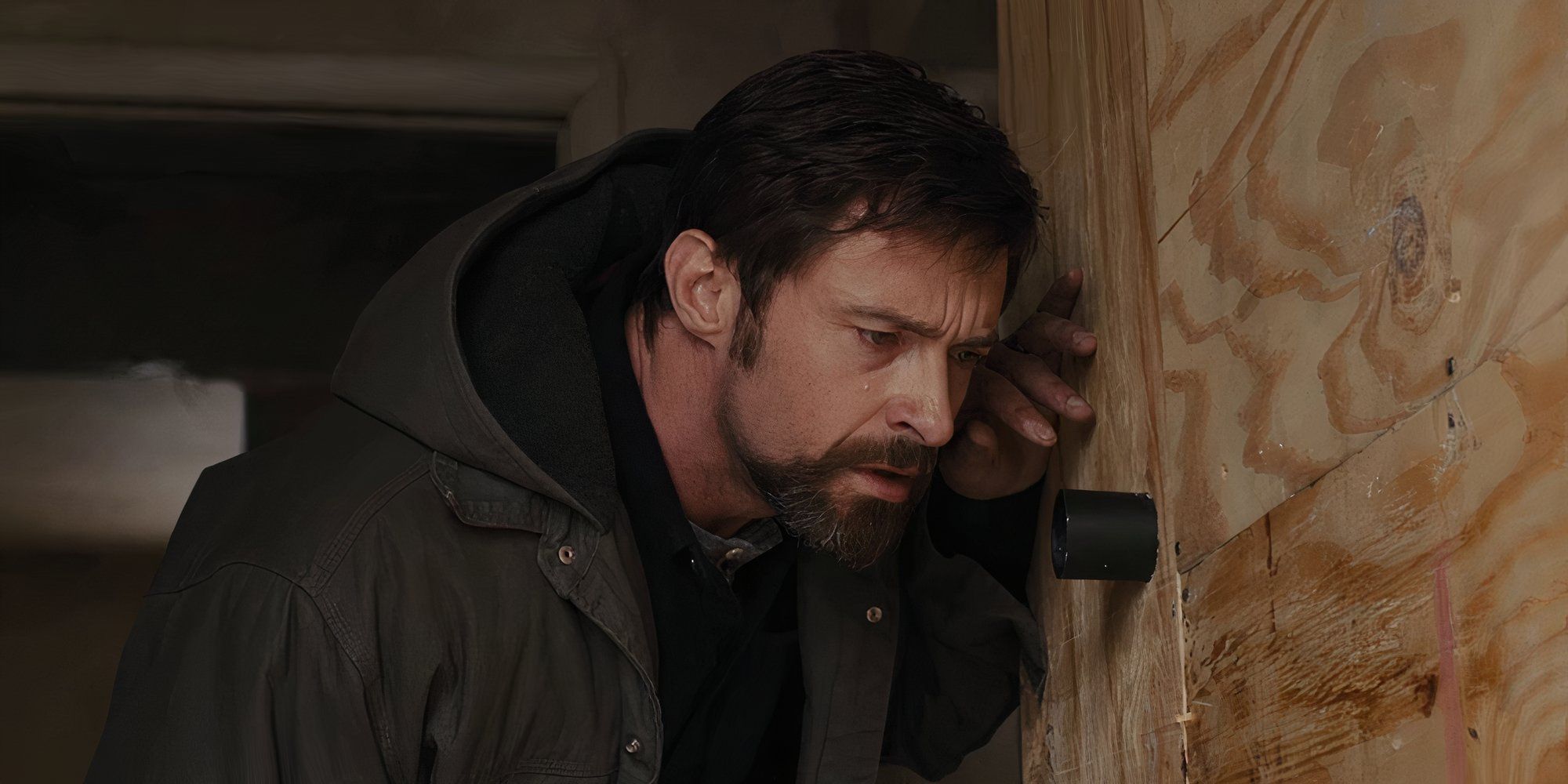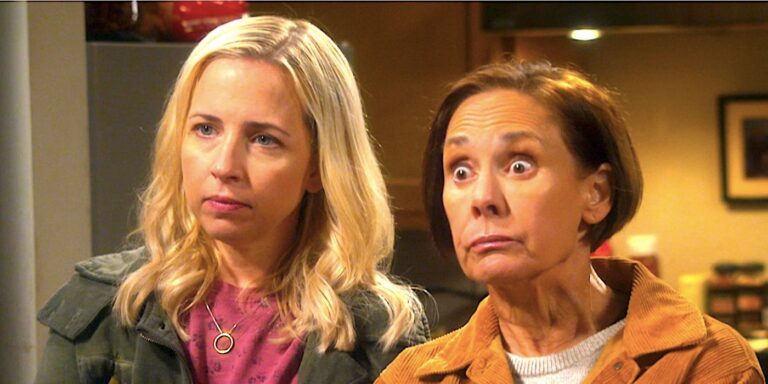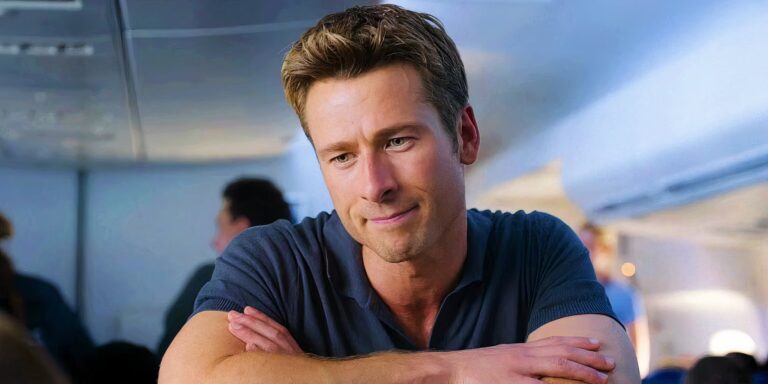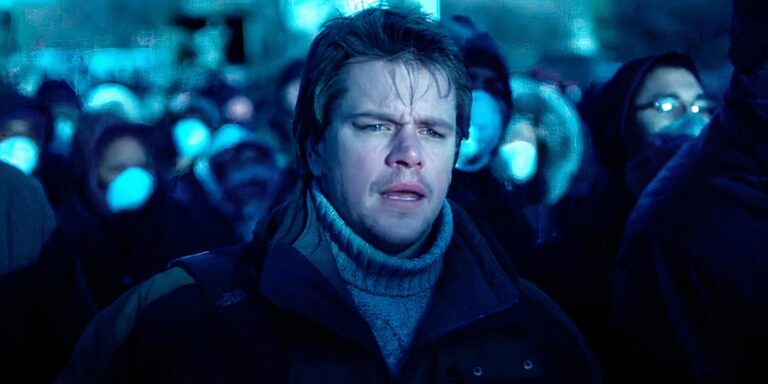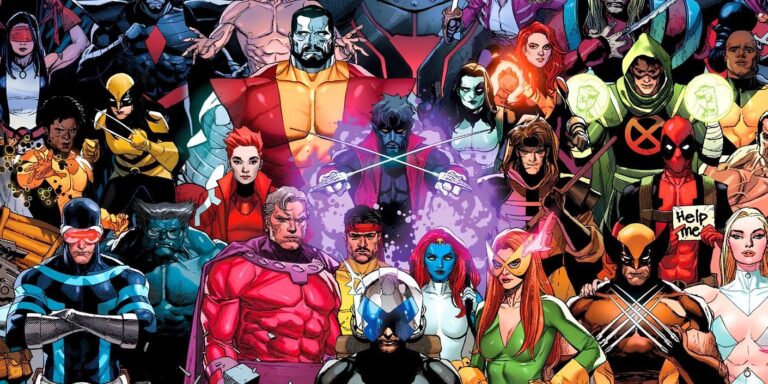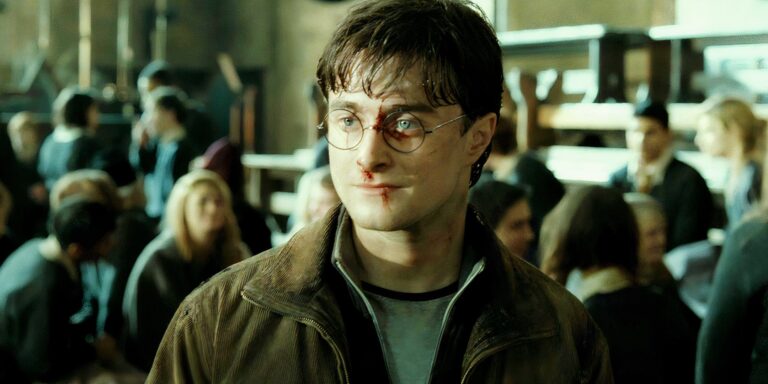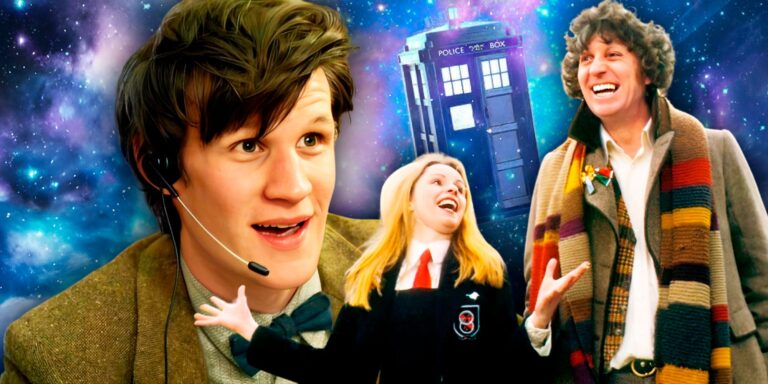Summary
- Some movie mysteries are better left unsolved, but many times the unresolved ambiguity can hinder the narrative and leave audiences frustrated.
- Ambiguity surrounding a character’s identity or fate can sometimes take away from the emotional depth of a story, leading to missed opportunities.
- Leaving viewers hanging on unresolved plot points, like the fate of a character or the meaning of a mysterious object, can sometimes result in unsatisfying conclusions for audiences.
Warning: Spoilers Ahead!Many movies deliberately leave their mysteries unanswered, but some would have been better served untangling the mystery and providing closure. Whether it’s the contents of the briefcase in Pulp Fiction or the identity of Sophie’s real father in Mamma Mia!, some movie mysteries are better left unsolved. However, a lot of the time, an unsolved movie mystery is not worth the ambiguity that it causes, whether that’s a result of it leaving a major plot hole unanswered, causing frustration among audiences, or hindering the narrative of the movie itself.
From the identity of a masked vigilante to the fate of an iconic supervillain, these movie mysteries often feel like a lack of closure rather than compelling storytelling. Some of them may well be answered in future movies, while some are likely to remain unsolved indefinitely. What is for certain is that all of them would make their movies better if they were explained, whether that’s partially or fully.
10 Is Deckard A Replicant In Blade Runner?
A Misguided Metaphor For Humanity
The ambiguity around Rick Deckard’s (Harrison Ford) true identity in Blade Runner has often been touted as a profound piece of symbolism that provokes discussion about the nature of humanity. While Blade Runner is undoubtedly a masterclass in how to explore the human condition, creating a sense of confusion about the main protagonist often feels like an unfinished thought that the filmmakers themselves couldn’t resolve. Ford and the movie’s director, Ridley Scott, have often disagreed about what Deckard’s true potential replicant nature in Blade Runner is.
“By not answering the question of Deckard’s nature, the filmmakers may have unintentionally damaged the message of human love that made the first movie so fantastic.”
Leaving the mystery unsolved in the 1982 original may have worked well on its own, but the lack of any clarification in Denis Villeneuve’s 2017 Blade Runner: 2049, perpetuates this frustration. In an interview, Villeneuve himself stated rather paradoxically that while he “loves” the mystery of Deckard’s identity, he also views the original Blade Runner as a movie about “a human falling in love with a designed being” (via CinemaBlend). By not answering the question of Deckard’s nature, the filmmakers have damaged the message of human love that made the first movie so endearing.
9 Who is ‘V’ In V For Vendetta?
Is Anonymity Really A Compelling Symbol Of Rebellion?
V For Vendetta is one of the most unique movies of modern times, centering on the story of an anonymous anarchist simply known as V (Hugo Weaving) as he engages in acts of terrorism against a totalitarian regime in a dystopian UK. Now, it is undeniably intriguing to watch V ignite rebellion without ever revealing his identity, but it is hard not to feel that V For Vendetta missed a major opportunity by keeping him anonymous. There is a lack of resolution within the narrative, and it stems from V’s anonymity.
By not exploring V’s backstory or specific motives, V For Vendetta sacrifices its emotional depth. V’s anonymity is a double-edged sword, catalyzing the message of the movie while also distancing audiences from gaining a true understanding of what the rebel is fighting for. Abstraction always works in movies to a certain extent, but in the case of V’s identity in V For Vendetta, it has been taken too far. This lack of clarity is ultimately ironic considering V’s thoughts about knowledge: “Knowledge is like air, vital to live. Like air, no one should be denied it.”
8 How Much Was Truthful In The Usual Suspects?
Masterful Writing Or Convenient Excuse?
The plot twist at the end of The Usual Suspects is one of the greatest in movie history, revealing that Roger “Verbal” Kint (Kevin Spacey) was in fact the criminal mastermind Keyser Söze. Agent Dave Kujan (Chazz Palminteri) realizes that Verbal has fabricated his story using information and news clippings from around his office during the interrogation. Despite this, the twist never truly reveals what parts of Verbal’s story were real, and what were fictitious.
Evidently, there had to be some truth to the story because of the massacre on the boat, otherwise Verbal/Söze had no reason to be in the interrogation room in the first place, but the extent of this truth is never revealed. The ambiguity of Verbal’s story may keep audiences intrigued in The Usual Suspects long after the credits roll, yet it feels like an excuse to avoid tying up the loose ends of the movie’s convoluted plot. While it is a movie mystery handled with the utmost care, it risks undermining the intricacies of Verbal’s web of lies that drive the plot of The Usual Suspects.
7 What Is The Narrator’s Name In Fight Club?
A Gimmick Rather Than A Plot Device
Fight Club is well known for its story that tackles the crisis of toxic masculinity and identity, and the anonymity of The Narrator (Edward Norton) supports this message very effectively. In a movie that is full of psychological manipulation and twists, not even revealing The Narrator’s name just adds an unnecessary layer of ambiguity. Not only does this risk the audience not connecting with the character, but it may even undermine how many viewers interpret the film.
“In a movie that is full of psychological manipulation and twists, not even revealing The Narrator’s name just adds an unnecessary layer of ambiguity”
By not giving The Narrator a name, Fight Club needlessly confuses viewers from the outset. This confusion is only heightened when Fight Club‘s main twist of the movie reveals Tyler Durden (Brad Pitt) to be an alter of The Narrator. Yes, it adds to The Narrator’s struggles with self-definition, but it is also a highly convoluted plot point that serves more as a gimmick in the shadow of Fight Club‘s mystery than a meaningful device to intrigue audiences.
6 What Caused The Groundhog Day Time Loop?
A Missed Opportunity
Groundhog Day is one of the most influential comedy movies of all time, telling the story of cynical weather forecaster Phil Connors (Bill Murray) as he finds himself constantly reliving the same day. While the audience can assume that Phil was trapped in the time loop as a way to learn a metaphorical lesson about humanity, it is never revealed what actually causes it. There have been numerous theories about its true cause, including one that posits the Groundhog Day loop was the work of the Devil.
This seems to be a major mistake on the filmmaker’s part. If the movie had revealed the true cause of the time loop, this could have elevated the movie’s symbolism greatly. Groundhog Day‘s writer, Danny Rubin, “never intended” to make a movie with a truly deep meaning, and as a result, the cause of the time loop will likely never be revealed, much to the frustration of audiences around the world (via The Telegraph).
5 What Was Joker’s Fate After The Dark Knight?
Not Mentioned In The Dark Knight Rises
Heath Ledger’s Joker in The Dark Knight is arguably the best comic book movie villain of all time. The chaos and life that Ledger brought to the role was incredible, earning him a posthumous Academy Award for Best Supporting Actor. While it was out of the utmost respect for Ledger following his tragic passing that meant the Joker did not appear in The Dark Knight Rises, the movie does not even mention the character.
A performance as legendary as Ledger’s surely deserved at least a mention in the sequel, especially considering the Joker’s monumental impact on The Dark Knight‘s story and Bruce Wayne’s (Christian Bale) psyche. Failing to mention the Joker at all means that the fate of the character himself remains uncertain, as he was left dangling from a building at the end of The Dark Knight. It also means that his story did not get the closure some audiences would have been eager to see following the death of the acting legend.
4 Who Bought Avengers Tower?
The MCU Still Hasn’t Addressed It
In Spider-Man: Homecoming, released in 2017, it was revealed that Tony Stark (Robert Downey Jr.) had sold the iconic Avengers Tower in New York City to move the superheroes upstate to their compound. The sale of the tower has been addressed a few times, but besides that, this has not been explored at all. As there are more than a few billionaires who exist in Marvel Comics and could have bought the tower, this lack of resolution seems to be drawn out for an unnecessarily long period of time.
The sale of Avengers Tower now seems more like it has been forgotten by the MCU, rather than being used as a genuine plot point. While it certainly keeps audiences intrigued in the franchise, it is just one example of the lack of cohesiveness and logic seen in the more recent MCU installments. Alongside the massive Celestial emerging from the ocean from Eternals, the new ownership of Avengers Tower feels like it should have had more of an impact on the overarching story of the MCU by now.
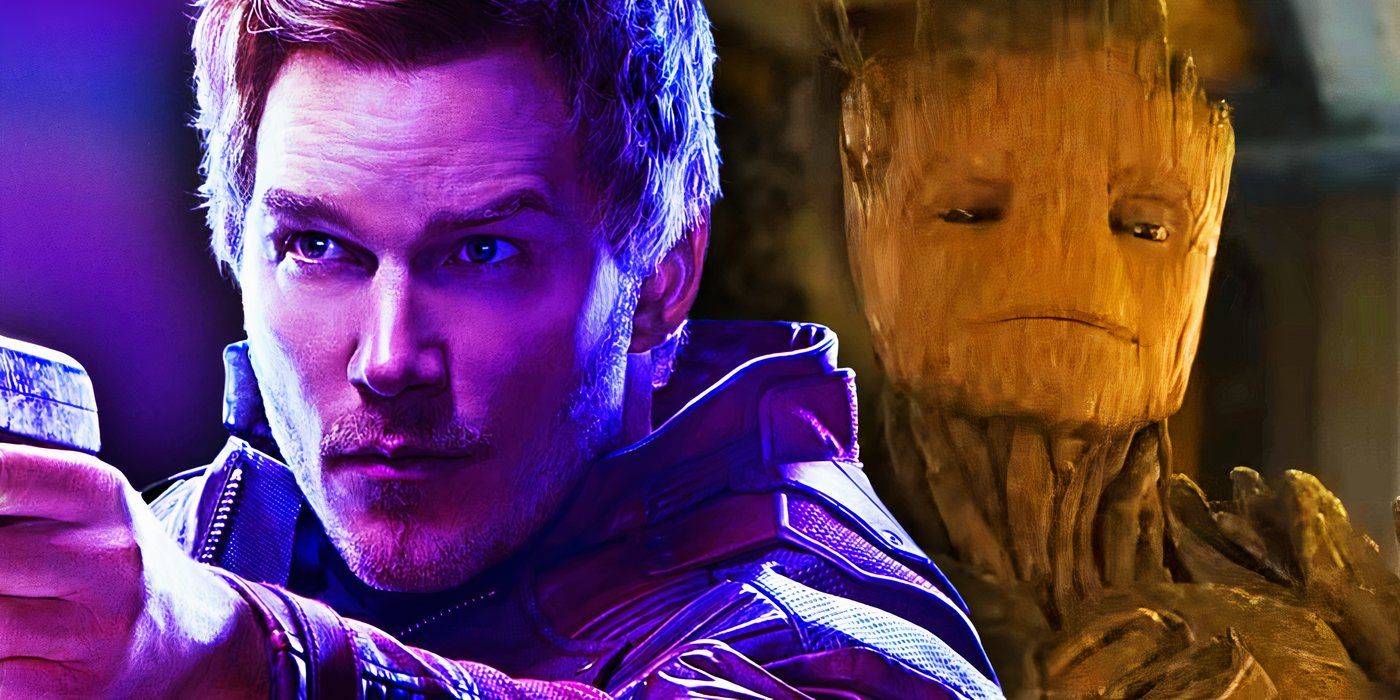
Related
Avengers 6 Already Has The Best Way To Make Up For Infinity War’s Worst Hero Mistake
By adapting one major piece of Marvel Comics’ Secret Wars event, one MCU hero could finally get redemption after Avengers: Infinity War.
3 Does Ray Die At The End Of In Bruges?
Emotion Is Outweighed By Ambiguity
In Bruges tells the story of hitmen Ray (Colin Farrell) and Ken (Brendan Gleeson) as they flee to Bruges following a botched job where a child was accidentally killed by the former. Ray’s guilt is one of the primary facets of the story, driving him to attempt suicide before being stopped by Ken. In Bruges ends with Ray suffering multiple gunshot wounds at the hands of his cruel boss, Harry (Ralph Fiennes), and praying in an ambulance: “I really, really hoped I wouldn’t die.”
The thing is, it is never revealed if Ray has died or not. The ambiguity is initially appealing before one realizes that the entirety of In Bruges has been building towards Ray’s ultimate fate. If he does die, it is a tragedy considering he has just clawed his way back from suicide. If he survives, it could be a happy ending. By not giving the viewers a definite answer, In Bruges ends up catering to the worst of both worlds – Ray’s fate is uncertain, meaning his character arc has been left indefinitely unfinished.
2 What Is The Veil In Harry Potter?
And What Does It Mean?
The 2007 movie adaptation of Harry Potter and the Order of the Phoenix introduces audiences to The Veil, a mysterious stone archway hidden deep in The Ministry of Magic’s Department of Mysteries. During a fight with a group of Death Eaters, Harry’s godfather, Sirius Black (Gary Oldman) is killed by Bellatrix Lestrange (Helena Bonham Carter) and passes through The Veil. The true origins and purpose are never revealed in the movies, with the books also providing very few answers.
“This was a missed opportunity by both the author and the filmmakers to delve deeper into the lore of the Wizarding World.”
Evidently, The Veil has something to do with Life and Death, as Sirius’ death reveals, but no more is known about it than this. This was a missed opportunity by both the author and the filmmakers to delve deeper into the lore of the Wizarding World. If The Veil were to be explained, it could have provided ample opportunity to explore the concept of mortality among witches and wizards, as it is well known that multiple people, including Voldermort, had tried to cheat death in Harry Potter and failed.
1:42
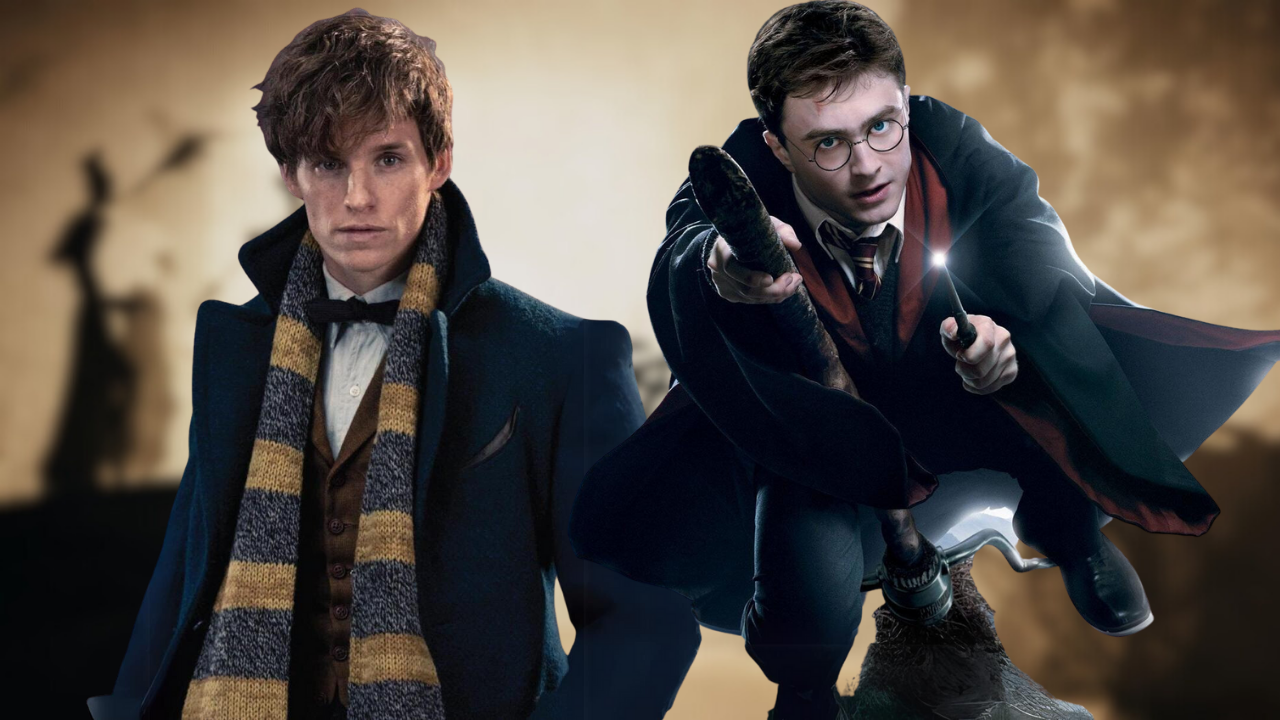
Related
What’s Next For The Harry Potter Franchise?
The Wizarding World seems to be over, but the Harry Potter franchise continues to expand with a show – what’s next? Here’s what could happen.
1 Does Keller Get Found At The End Of Prisoners?
An Unsatisfying Conclusion
Prisoners is a prime example of how to do a mystery movie well. It balances the suspenseful plot of two kidnapped girls with the rage of their fathers exceptionally well, and has a great deal of red herrings to mislead audiences. After both girls have been returned safely, one of the girl’s fathers, Keller (Hugh Jackman), is imprisoned by their kidnapper in a hidden pit. When Detective Loki (Jake Gyllenhaal) goes to investigate and hears Keller’s faint whistle, Prisoners credits start to roll.
Prisoners spends two and a half hours telling a mystery story, solving said mystery, and then ending on another mystery. This is an ending that is full of dissatisfaction, with audiences never truly being sure whether Keller was found or left to die. As this list has stated, ambiguity can be a crucial tool to use in movies, yet in this case it has been used to an extremity, detracting from the overall emotional and psychological impact of an otherwise exceptional movie.
Sources: CinemaBlend, The Telegraph.
